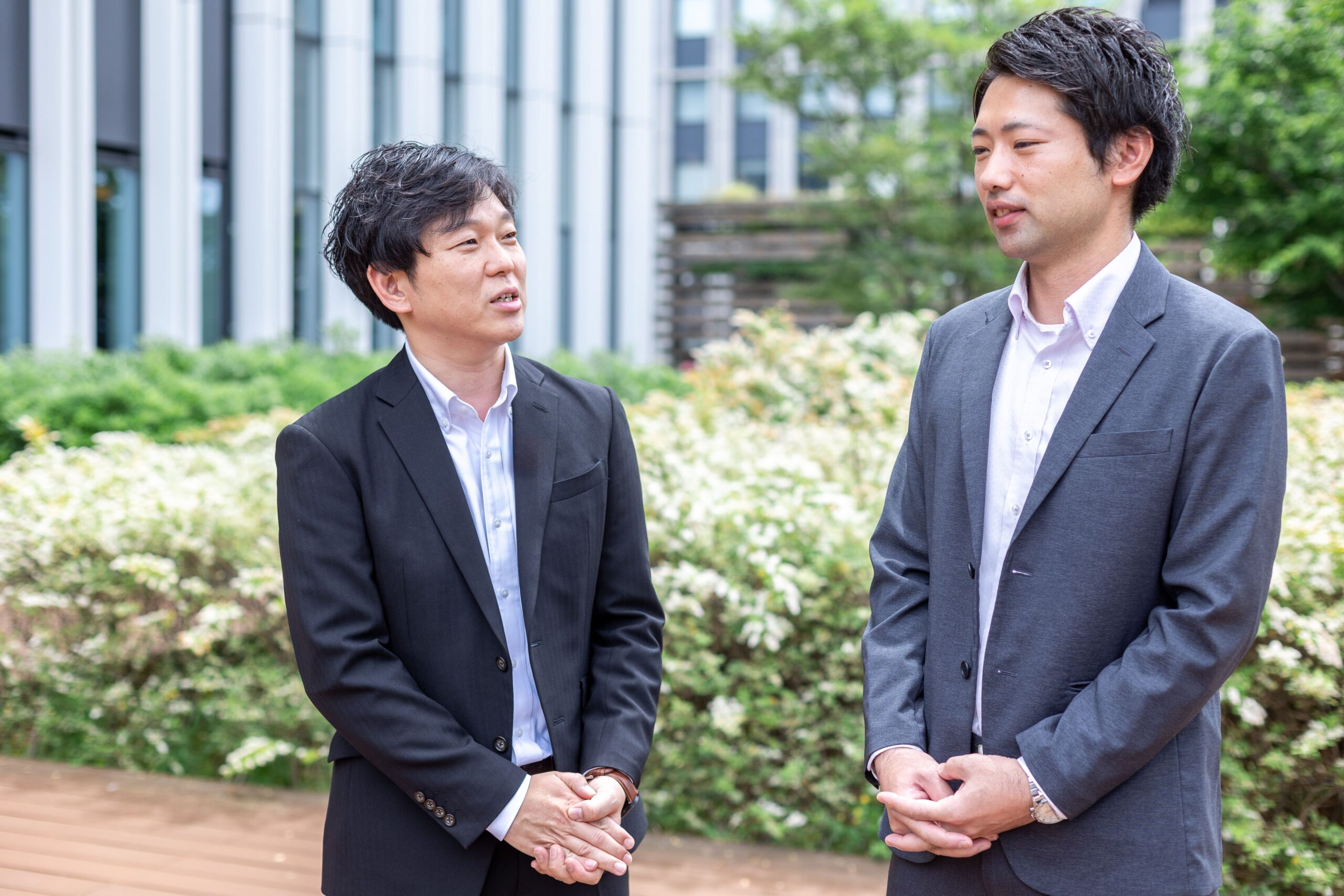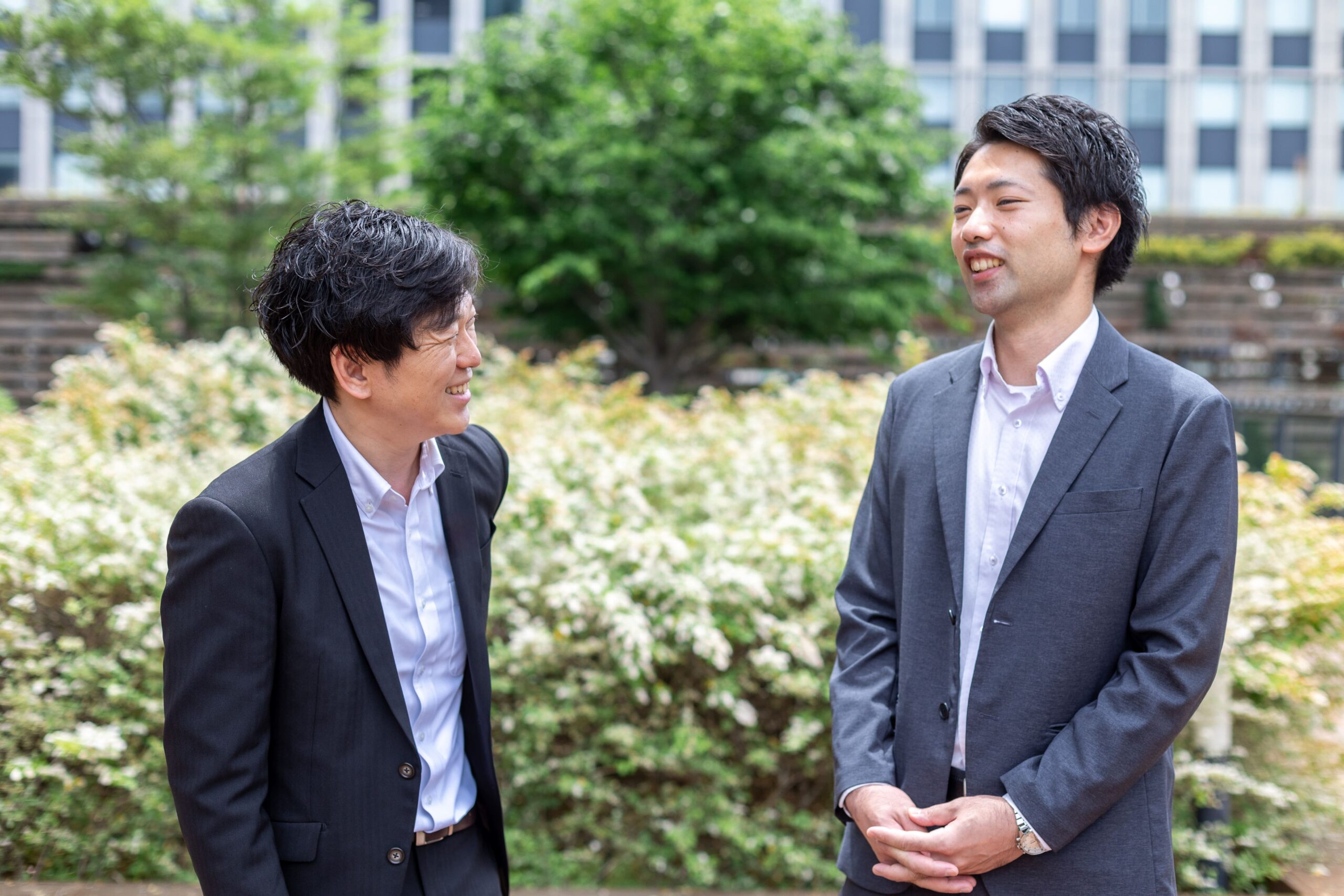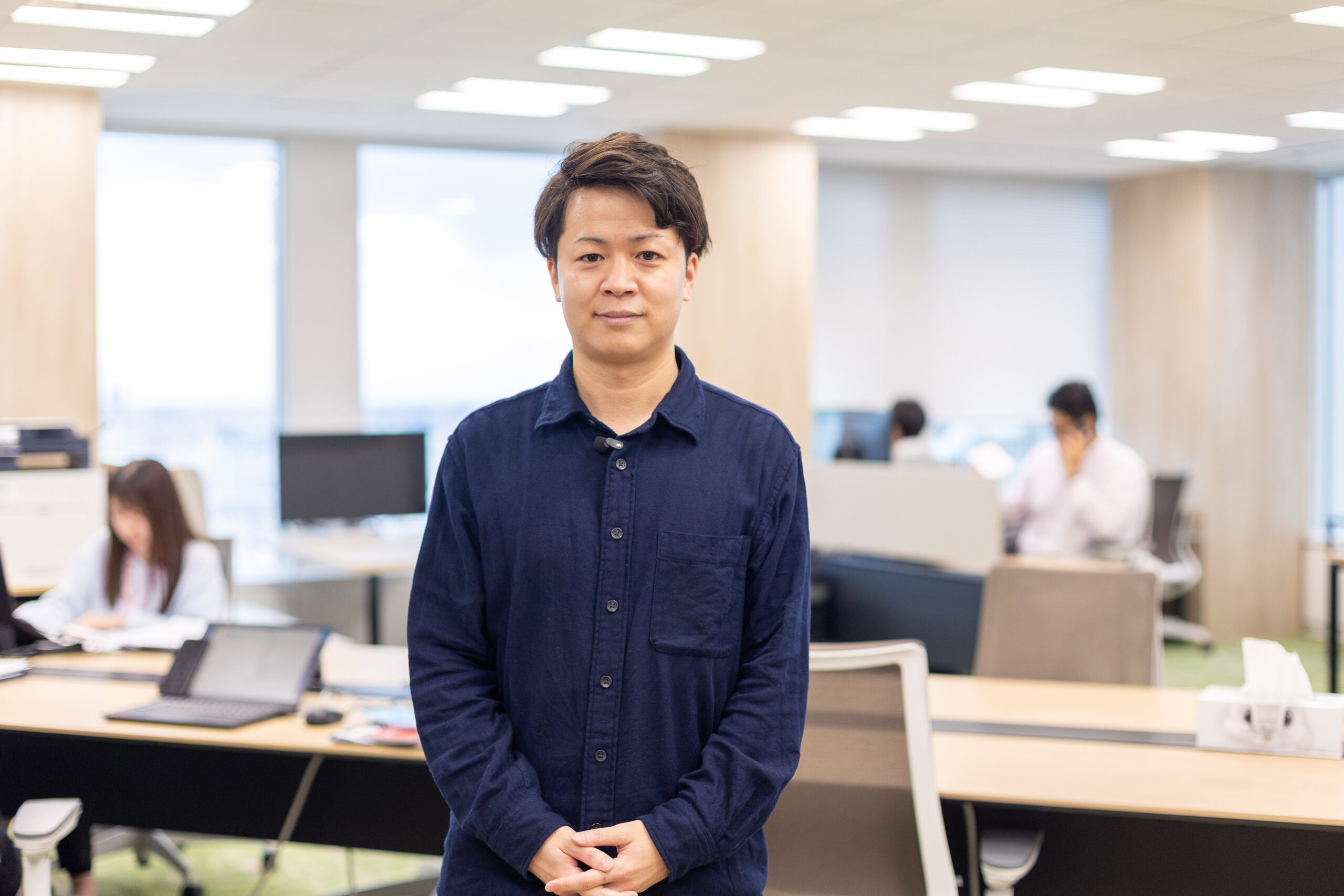





Fukushima Prefecture's first and 40th base "Fukushima Hongu Center". The potential of scaffolding as an infrastructure base
- infrastructure
- Center Manager
- Equipment Center
- Fukushima
- Kanto



BUSINESS
Text: Mitsuda Sayaka
Photo: Sho Kobayashi
PROIFILE

Information wasn’t reaching all employees, and having too many systems in place was causing inefficiency.
As ASNOVA continues to grow rapidly, we realized we couldn’t afford to overlook these “small inconveniences.”
To address this, we introduced “Lark,” an all-in-one SaaS platform, across the company. We believe that in order to strengthen collaboration—both within and beyond the organization—and to create an environment where each employee can think and act independently, a strong foundation is essential.
We spoke with Shunsuke Takeuchi, Senior Manager, and Yuki Kuchida, Assistant Manager of the General Affairs Department about the challenges leading up to the implementation and the ongoing internal transformation happening behind the scenes.
→ The interview video is now available on YouTube's "ASNOVA Channel"!
Text: Mitsuda Sayaka
Photo: Sho Kobayashi
PROFILE
Takeuchi: I first heard about Lark from the management team and began by researching what kind of system it was. To be honest, I wasn’t very enthusiastic at first. Replacing our existing systems would require a lot of work, and I could already anticipate the burden of explaining everything to employees and getting them to adopt it. I even questioned whether we really needed to go through with it at all. However, since communication issues had long been a challenge within the company, I decided to shift my mindset. I thought, “We have an opportunity—so why not give it a try?” That’s when I started getting involved in the project.

Kuchida: The issue I felt strongly about was "information fragmentation due to the large number of IT systems." Although ASNOVA has advanced in IT itself, it was necessary to cross multiple systems to complete work. For example, even though we had data, it wasn't consolidated in one system, so every time we wanted to refer to something, we had to launch a different app... This was a psychological hassle.
With Lark, everything can be done in one system and managed centrally, so I felt there was great potential there.

Takeuchi: Issues with "internal communication" were also evident. At ASNOVA, not all employees were provided with a computer, and as a result, we were unable to provide all employees with accounts to use some of the company's internal systems. As a result, communications were only sent to employees with accounts, and the employees were told to "please pass on the information to those around you." Since it would be costly to provide accounts to everyone, the result was that information only reached a select few. Naturally, we always had doubts about whether information was really reaching all employees, but we had no way of checking this. This was how an "information gap" was created.
Kuchida: That's exactly right. If information doesn't reach everyone, it can create a sense of isolation within the company and lead to distrust in the company. That's why we wanted to create a system that would ensure information is delivered to everyone.
Kuchida: I would like to use Lark as a starting point for data analysis. In the past, it took too long to put together scattered information. In the future, I think we are in a phase where we will make effective use of existing data and formulate strategies, rather than collecting new data.
Lark can also be used to share information with people outside the company. By promoting the use of IT, including with our business partners, ASNOVA hopes to lead the transformation of the entire scaffolding industry.

Kuchida: I use it for task management. At ASNOVA, we had different systems for different tasks, such as "use this system for this task" and "manage applications with this system." Previously, I created separate tables for task management and entered the due date each time, but with Lark, I can link notifications, so I am automatically reminded every day at 6pm of "tasks that are due today." Since tasks are completed within one system, there is no need to go back and forth between different systems, and I no longer miss tasks, so my work has become much smoother.

Kuchida: As Takeuchi said, I was also skeptical at first. But I decided to clarify "why we should do it" and "what we should do it for" rather than "why we shouldn't do it," and then we moved forward with the introduction. We had the option of keeping the existing system, but we decided to cancel most of the systems with the thought, "If we're going to do it, we're going to do it!" I think it was because of that thought that we were able to experience the new convenience.


INDEX












![[Circulation Project Discussion Vol. 3] It all started with "it looks fun." Rediscovering "ASNOVA's uniqueness" from a realistic perspective](/wp-content/uploads/2025/12/250808-41-scaled.jpg)










